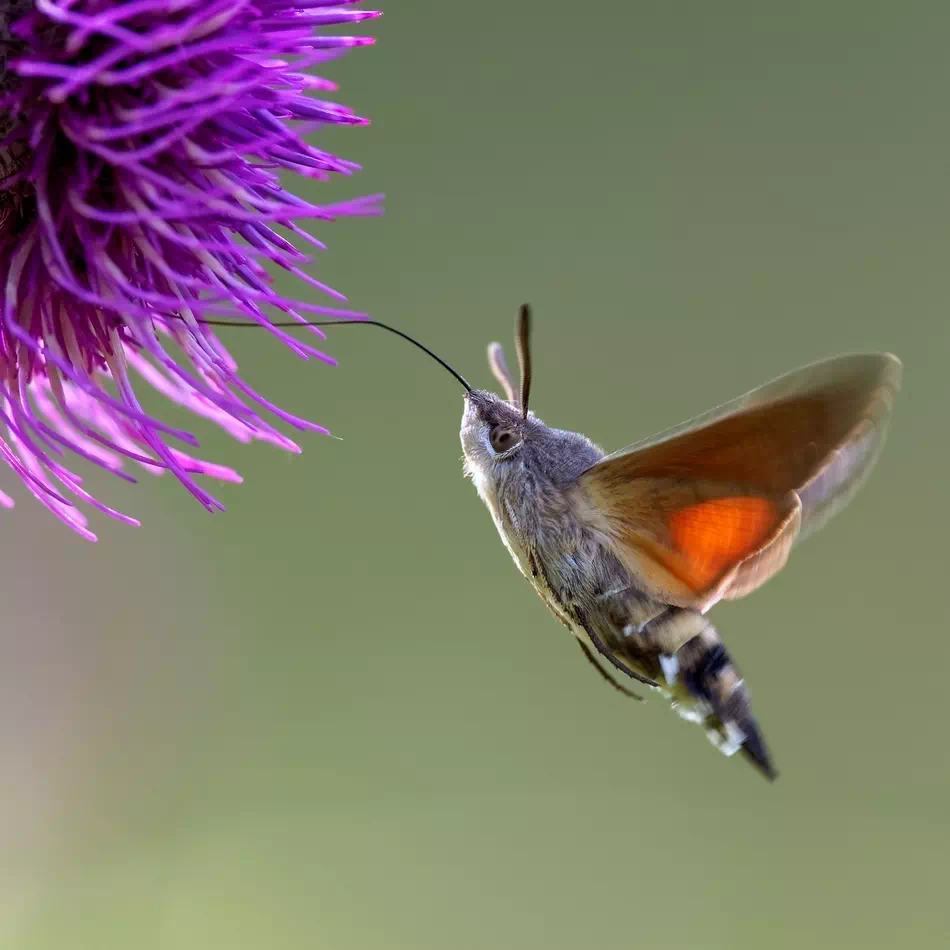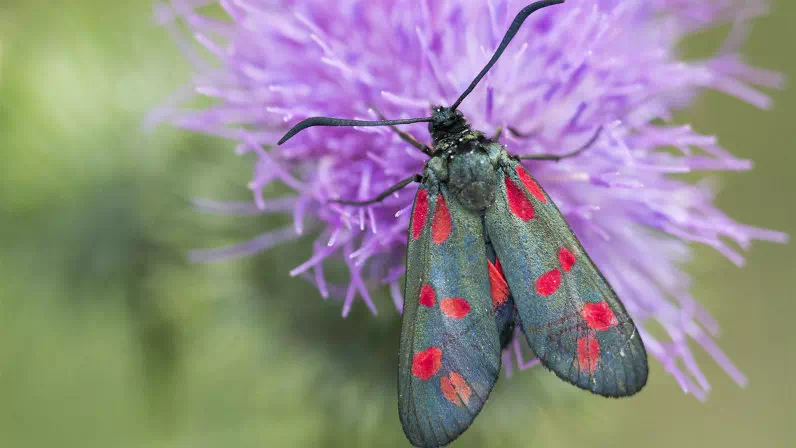Moths have a vital role as pollinators in the night
Posted: 02 Oct 2020, 06:12
Moths are important pollen transporters in English farmland and might play a role in supporting crop yields, according to a new study.


The research, published in Biology Letters, shows that moth pollen transport networks are larger and more complex than networks for daytime pollinators.
The team found that moths transport pollen from a high number of plants also visited by bees, butterflies and hoverflies, but also interacted with plants not commonly visited by these insects.
The study was conducted during the growing seasons (March-October) of 2016 and 2017 at the margins of nine ponds, located within agricultural fields in Norfolk, eastern England (UK).
Nocturnal moth communities and daytime pollinators were surveyed once a month to see which plants they visited and how frequently.
Of the 838 moths swabbed, 381 moths (45.5%) were found to transport pollen. In total pollen from 47 different plant species was detected, including at least 7 rarely visited by bees, hoverflies and butterflies. 57% of the pollen transported was found on the ventral thorax of the moths.
In comparison, daytime pollinators, a network of 632 bees, wasps, hoverflies and butterflies, visited 45 plant species, while 1,548 social bees visited 46 plant species.
Dr Walton (UCL Geography) concluded: "While bumblebees and honeybees are known to be super pollinators they also preferentially target the most prolific nectar and pollen sources. Moths may appear to be less effective pollinators by comparison, but their high diversity and abundance may make them critical to pollination in ways that we still need to understand."


The research, published in Biology Letters, shows that moth pollen transport networks are larger and more complex than networks for daytime pollinators.
The team found that moths transport pollen from a high number of plants also visited by bees, butterflies and hoverflies, but also interacted with plants not commonly visited by these insects.
The study was conducted during the growing seasons (March-October) of 2016 and 2017 at the margins of nine ponds, located within agricultural fields in Norfolk, eastern England (UK).
Nocturnal moth communities and daytime pollinators were surveyed once a month to see which plants they visited and how frequently.
Of the 838 moths swabbed, 381 moths (45.5%) were found to transport pollen. In total pollen from 47 different plant species was detected, including at least 7 rarely visited by bees, hoverflies and butterflies. 57% of the pollen transported was found on the ventral thorax of the moths.
In comparison, daytime pollinators, a network of 632 bees, wasps, hoverflies and butterflies, visited 45 plant species, while 1,548 social bees visited 46 plant species.
Dr Walton (UCL Geography) concluded: "While bumblebees and honeybees are known to be super pollinators they also preferentially target the most prolific nectar and pollen sources. Moths may appear to be less effective pollinators by comparison, but their high diversity and abundance may make them critical to pollination in ways that we still need to understand."